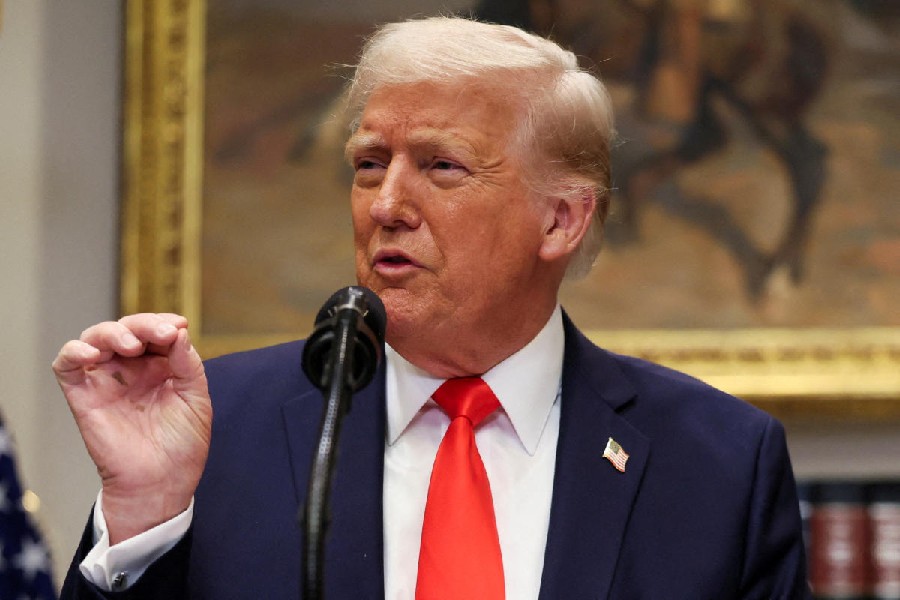Sebastien Farcis, a French radio journalist, on Thursday said he would have to leave India on Monday after his “work permit” was denied by the home ministry, adding to a list of foreign journalists who have had to quit India in recent months and years.
Farcis, a South Asia correspondent for Radio France Internationale, Radio France, Liberation and the Swiss and Belgian public radios, who has lived in India for 13 years and is married to an Indian woman, is the second French national in four months to have been denied work permit by India.
Farcis, in a statement posted on X (formerly Twitter), said the ministry of home affairs had notified the denial on March 7 this year, thus not allowing him to cover the Lok Sabha elections that saw Narendra Modi return to power for a third time, minus the brute majority he enjoyed in his first two terms.
“This work ban comes as a big shock: it was communicated to me on the eve of the Indian general elections, the largest democratic elections in the world, which I was hence forbidden to cover. This appeared to me as incomprehensible censorship,” Farcis wrote.
“This denial comes in a worrying context of increasing restrictions on the work of foreign journalists: after Vanessa Dougnac I am the second French journalist in four months having to leave India under these conditions. At least five OCI [Overseas Citizen of India] foreign correspondents have been banned from working as journalists in less than two years,” he added.
Farcis is now in France awaiting the Indian government’s decision on his application of another work permit.
The French radio journalist is not the only foreign journalist to have faced trouble with the Indian authorities during the years Narendra Modi has been in power.
Here are a few well-known cases:
Aatish Taseer: Britain-born, India-raised writer-colomnist’s OCI card was reportedly declined in November 2019, six months after he wrote an article for Time magazine describing Modi as “Divider in Chief.”
The MHA, which declined his application, officially cited Taseer’s “failure” to disclose that his father, the late Salman Taseer, was a Pakistani national.
Angad Singh: A US-based journalist and an OCI cardholder who makes documentaries for Vice News was deported to the US on arrival in New Delhi in August 2022.
In 2020, Singh had made a documentary, ‘India Burning’, which the authorities had deemed as “negative” as he had “indulged in blatant anti-national propaganda to defame the country”.
In January 2023, the Union government informed the Delhi High Court that Singh was a “blacklisted subject”.
Vanessa Dougnac: Dougnac, Delhi-based South Asia correspondent based in Delhi for four French publications including La Croix, for over two decades, left India – where she came as a student, worked as a journalist, married and raised a son in – in February this year. She was among the longest serving foreign correspondents in India.
On 15 September 2022, the Ministry of Home Affairs had reportedly sent a message to Dougnac, announcing that she was banned from working as a journalist in India.
In January this year, the MHA reportedly told Dougnac her OCI card would be revoked within two weeks as she was accused of “malicious reporting” that created a negative perception of India, of inciting disorder, not taking permission for travelling to restricted areas and reporting on neighbouring countries.
Avani Dias: The South Asia bureau chief of Australian Broadcasting Corporation for over two years was told her visa would not be extended for her reporting in the ABC’s Foreign Correspondent segment on the murder of Canadian Sikh separatist leader Hardeep Singh Nijjar in a car park in Vancouver, that has blown into a diplomatic controversy.
In an article she wrote on June 16, Dias alleged the Indian government had ordered Youtube and Facebook to take down her videos. Dias had applied for visa renewal in January this year, around the same time while she was shooting for the film in Punjab, interviewing the followers of Nijjar.
Dias left India on the day of the first phase of the just-concluded Lok Sabha polls.
The Indian authorities have disputed Dias's claim and said her visa was extended on April 18, a day before she had booked her ticket to return home to Australia.
An unidentified Chinese journalist: In June 2023, the last remaining Chinese journalist in India with the news agency Xinhua was denied extension of visa and left.











